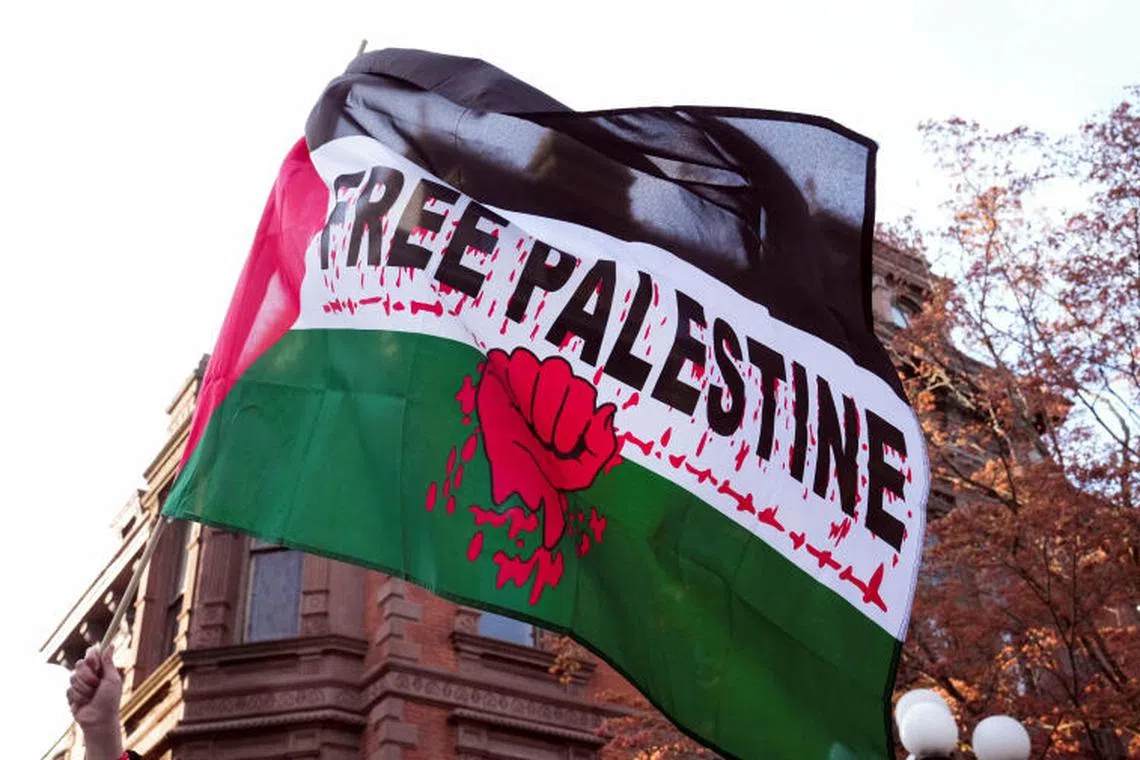UN conference on Israel, Palestine two-state solution set for June
Sign up now: Get ST's newsletters delivered to your inbox

A protester holding a flag that says "Free Palestine" in New Haven, Connecticut, US on April 23.
PHOTO: REUTERS
PARIS - An international conference meant to resurrect the idea of a two-state solution to the Israeli-Palestinian conflict will take place from June 17 to 20 at the UN headquarters in New York, a UN spokeswoman said on May 16.
The conference stems from a resolution approved in December by the UN General Assembly and it will be co-chaired by France and Saudi Arabia.
The dates of this meeting were confirmed by UN spokeswoman Sharon Birch.
A diplomat in Paris close to preparations for the conference said it should pave the way for more countries to recognise a full-blown Palestinian state.
Nearly 150 countries recognise the State of Palestine, which has observer status at the United Nations but is not a full member as the Security Council has not voted to admit it.
In May 2024, Ireland, Norway and Spain took the step of recognising a Palestinian state but other European governments, including France, have not.
President Emmanuel Macron said in April that France could recognise a Palestinian state
Mr Macron said at the time that he wished to organise the New York conference to encourage recognition of the State of Palestine, “but also a recognition of Israel from states that currently do not”.
The United Arab Emirates, Bahrain and Morocco normalised relations with Israel under the Abraham Accords, signed in 2020 during US President Donald Trump’s first term.
But many Arab countries have yet to join the agreement, particularly Saudi Arabia, as well as Israeli neighbours Syria and Lebanon.
Even before the start of the war in Gaza, sparked by Hamas’s October 2023 attack, Saudi Arabia had rejected the normalisation of ties with Israel without the creation of a Palestinian state.
Israeli Prime Minister Benjamin Netanyahu’s government is firmly opposed to any such move.
Several of his ministers have called in recent months for Israel to annex the West Bank, a Palestinian territory it has occupied since 1967. AFP


